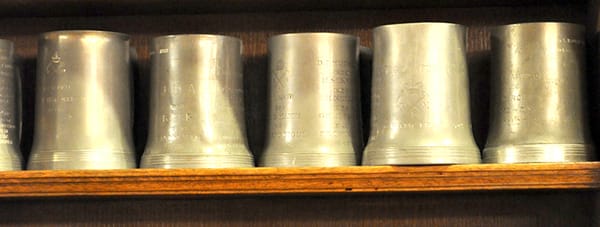QS World Rankings by subject released
Imperial down to ninth place but Engineering still in top ten

The QS university rankings have just released a breakdown of ranking by subject and while UK universities remain global leaders in higher education it would appear that competition keeps getting more intense each year.
The latest instalment of the rankings takes into account 46 different Subjects and five composite Subject Areas. Initial results show the UK taking the lead in eight subjects, including Anatomy and Physiology, Archaeology, Development Studies, Education, English Language and Literature, Geography, and Sports Related Subjects.
Imperial landed on ninth place this year and was overtaken by three UK institutions, with UCL taking seventh place, the University of Oxford taking sixth place and the University of Cambridge, the highest scoring UK university landing on fourth place.
In Engineering and Technology related subjects, Imperial placed sixth, behind Cambridge but ahead of Oxford which placed ninth. In Life Sciences and Medical Subjects, Imperial scored twelfth falling behind Cambridge, Oxford and UCL. Finally in Natural Science Subjects, Imperial landed on tenth place, which put us behind Cambridge and Oxford but ahead of UCL which landed on 62nd place. So at least we’ve got that going for us.
Out of the Engineering and Tech subjects that were evaluated, Imperial’s strongest was Civil and Structural Engineering coming fourth globally just after Cambridge, while it scored lowest in Computer Science related subjects which placed twelfth. However all Engineering and Tech degrees still managed to bag a top ten spot.
Out of the Life Sciences and Medical Subjects that were evaluated, Imperial’s most internationally competitive degrees were its Medical degrees, in 12th place, followed by Biological Science degrees in 19th place and finally by Pharmacology degrees in 26th place. Imperial fell behind Cambridge and Oxford in all three categories but scored higher in Biological Science degrees than UCL.
Finally out of its Natural Science degrees, Environmental Sciences scored the highest coming in ninth while Earth and Marine Science degrees scored the lowest landing on 26th place. No other Natural Science degrees got in the top ten.
This meta-analysis is an addition to the rankings which were originally released earlier in September 2016. The rankings saw Imperial fall to ninth place, from eighth in 2015 and joint second with Cambridge in 2014, scoring 94.1 overall. Imperial’s ranking reflects its decreasing overall score which has fallen from 96.1 points in 2015 and 99.4 points in 2014.
The QS World University Rankings, take into consideration six metrics: Academic reputation which is weighed 40% and is calculated by a global survey asking academics to identify the world’s top institution. Employer reputation is weighed at 10% and is similarly calculated through a global survey. Student-to-faculty ratio which is weighed 20% and aims to identify the universities that are best equipped to provide small class sizes and a good level of individual supervision. International faculty ratio and international student ratio are both weighed at 5% and aim to assess how attractive an institution is to foreign students and lecturers. And finally citations per faculty which are weighed 20% and aim at assessing an institution’s research impact. QS uses Scopus, “the world’s largest database of research abstracts and citations”. It takes into consideration the five most recent complete years of data and assesses the total citation count in relation to the number of academic faculty members.
Although Imperial achieved a perfect or near perfect scores (100) in almost every metric this academic year, it landed on a 69.8 in citations per faculty, which marks a four year low. Despite the minor move down the league table, Imperial remains a leader in STEM, while UK and US institutions still dominate the global academic rankings.
Cambridge still reigns supreme. It ranks in the top ten for more subjects than any other institution in the world (36) and UK unis take just over one-third of all top-three positions, and over a quarter of all top ten positions.
QS Head of Research, Ben Sowter, said: “If last autumn’s overall rankings suggested the winds of winter blowing towards the UK’s higher education system, this year’s subject rankings – enabling observers to drill down into university performance more deeply – provide a less chilling forecast. Though the UK does see its share of overall places decrease, this is a trend observed by institutions in the US, Canada, and Australia, as other nations grow increasingly competitive. We observe nations in both Eastern Europe and Asia – most notably Russia and China – increasing their overall share. However, the upper echelons of the tables remain dominated by the US and UK, and this seems likely to continue for the foreseeable future.”










